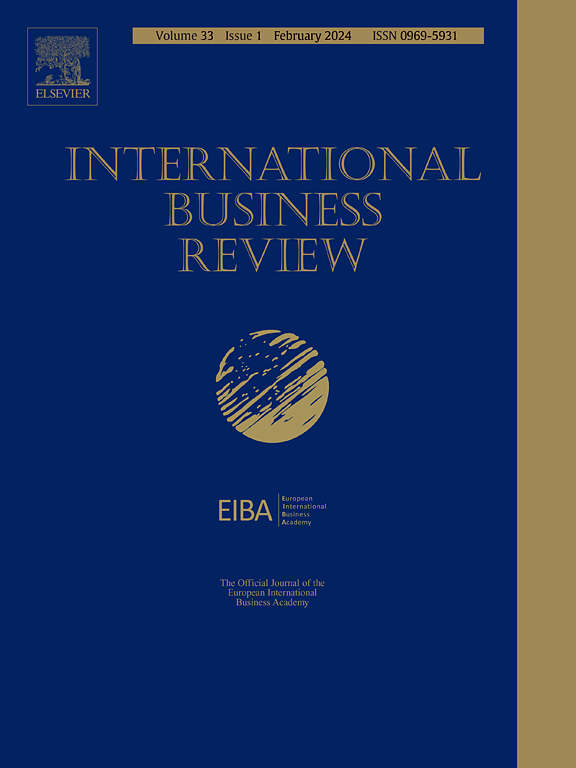国际商业的碎片化:一个地理和政治的视角
IF 6.1
1区 管理学
Q1 BUSINESS
引用次数: 0
摘要
为了纪念Rugman和Verbeke(2004)关于区域化的开创性工作20周年,Verbeke等人(2025)批判性地研究了地缘政治紧张局势(如美国和中国之间的紧张局势)如何重塑区域化和全球经济秩序。在此基础上,我们认为,虽然传统的区域化观点强调地理邻近是全球经济碎片化的主要驱动因素,但最近的地缘政治破坏表明,这些裂缝越来越多地与国家之间的政治断层线一致。我们开发了一个地理与政治(GAP)框架,将民族国家之间的地理距离与政治分歧并置。我们认为,政治距离改变了地理邻近与区域化之间的传统关系,在区域内和区域间的商业活动中产生了不同的影响。当地理和政治距离一致时,区域化效应更有可能持续甚至加强,但在其他情况下可能减弱或失效。该框架扩展并可操作Verbeke等人(2025)的观点,突出了碎片化的新范式,并为区域化和跨国公司多极地缘战略的文献开辟了新的研究方向。本文章由计算机程序翻译,如有差异,请以英文原文为准。
Fragmentation in international business: A geographic-and-political perspective
Marking the twentieth anniversary of Rugman and Verbeke’s (2004) seminal work on regionalization, Verbeke et al. (2025) critically examine how geopolitical tensions, such as those between the U.S. and China, are reshaping regionalization and the global economic order. Extending this study, we argue that while the traditional regionalization perspective emphasizes geographic proximity as the primary driver of global economic fragmentation, recent geopolitical disruptions indicate that these fractures are increasingly aligning with political fault lines among nations. We develop a Geographic-and-Political (GAP) framework, juxtaposing geographic distance with political divergence between nation-states. We propose that political distance modifies the traditional relationship between geographic proximity and regionalization, creating varied effects in both intra-regional and inter-regional business activities. The regionalization effect is more likely to persist or even strengthen when geographic and political distances align, but may weaken or fail otherwise. This framework extends and operationalizes the perspectives in Verbeke et al. (2025), highlighting a new paradigm of fragmentation and opening up new research directions for the literature on regionalization and MNEs’ multipolar geo-strategies.
求助全文
通过发布文献求助,成功后即可免费获取论文全文。
去求助
来源期刊

International Business Review
BUSINESS-
CiteScore
14.10
自引率
6.90%
发文量
95
审稿时长
62 days
期刊介绍:
The International Business Review (IBR) stands as a premier international journal within the realm of international business and proudly serves as the official publication of the European International Business Academy (EIBA). This esteemed journal publishes original and insightful papers addressing the theory and practice of international business, encompassing a broad spectrum of topics such as firms' internationalization strategies, cross-border management of operations, and comparative studies of business environments across different countries. In essence, IBR is dedicated to disseminating research that informs the international operations of firms, whether they are SMEs or large MNEs, and guides the actions of policymakers in both home and host countries. The journal warmly welcomes conceptual papers, empirical studies, and review articles, fostering contributions from various disciplines including strategy, finance, management, marketing, economics, HRM, and organizational studies. IBR embraces methodological diversity, with equal openness to papers utilizing quantitative, qualitative, or mixed-method approaches.
 求助内容:
求助内容: 应助结果提醒方式:
应助结果提醒方式:


